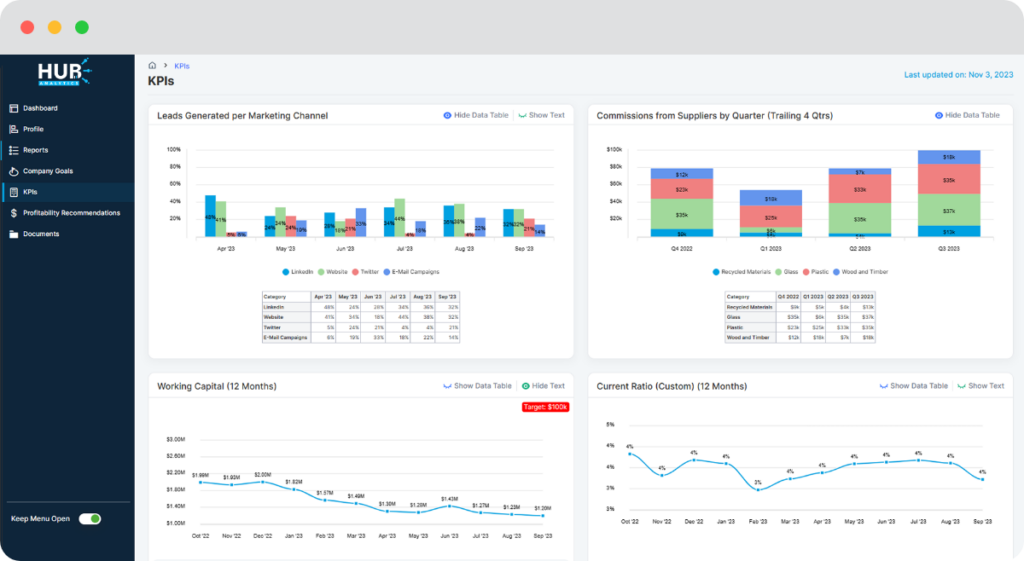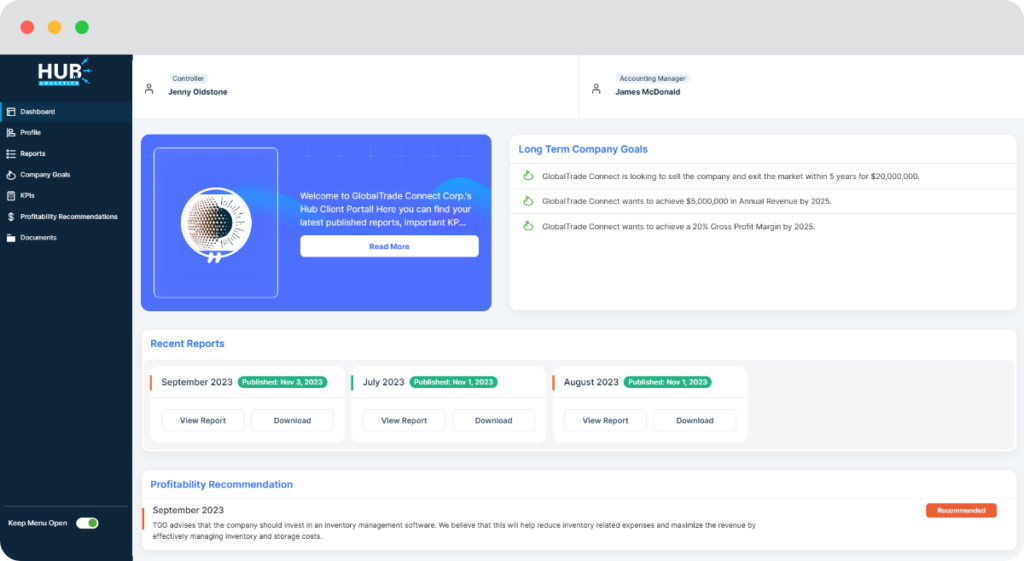Let’s explore the significance of metrics, essential nonprofit metrics, and how to choose the right ones for your organization.
Metrics, or Key Performance Indicators (KPIs), are measurable values that reflect the performance and progress of an organization. In the nonprofit sector, these metrics provide insights into the impact and effectiveness of their initiatives.
Nonprofit metrics encompass a range of indicators tailored to measure the success and efficiency of organizations dedicated to social impact. They go beyond financial figures, delving into engagement, outreach, and mission achievement.
Understand the trajectory of financial support with this metric, calculated by comparing current and past donation figures. A positive growth rate signifies expanding donor generosity, while a negative trend may prompt strategic adjustments.
(Current Donations – Previous Donations) / Previous Donations
Dive into donor loyalty by tracking the percentage of retained donors over a specific period. A high retention rate indicates a strong connection between your organization and its supporters, emphasizing the importance of relationship-building efforts.
(Number of Donors at End – Number of New Donors) / Number of Donors at Start x 100
Go beyond counting volunteer hours by assessing engagement levels. Track not only the quantity of volunteers but also the quality of their involvement. This metric provides insights into the dedication and impact of your volunteer base.
Number of Actively Engaged Volunteers / Total Number of Volunteers x 100
Evaluate the effectiveness of your programs by calculating the success rate. Whether it’s educational initiatives or community projects, understanding success rates helps refine strategies, allocate resources wisely, and enhance overall program impact.
(Number of Successful Outcomes / Total Number of Program Attempts) x 100
In the digital age, social media is a powerful tool for nonprofits. Measure your organization’s online influence by tracking the reach and engagement on platforms. This metric reflects the effectiveness of your communication and outreach efforts.
Number of People Reached / Total Number of Followers x 100

Secure funding for your initiatives by monitoring the rate of successful grant applications. Analyzing the acquisition rate helps refine grant-seeking strategies, ensuring a steady flow of financial support for your organization.
Number of Successful Grants / Total Number of Grant Applications x 100
Efficiency is key in fundraising. Calculate the cost per dollar raised to ensure that your fundraising efforts are financially sustainable. Lowering this metric indicates effective fundraising strategies that maximize the impact of each dollar.
Total Fundraising Expenses / Total Funds Raised
Go beyond quantitative metrics and assess the qualitative impact of your mission. Develop a Mission Impact Index to measure and communicate the tangible outcomes and positive changes your organization brings to the communities you serve.
Your website is a hub for information and engagement. Monitor website traffic and user engagement to understand your online presence. Analyzing these metrics helps optimize your website for better outreach and impact.
Average Page Views or Unique Visitors per Month
(Number of Engaged Users / Total Number of Visitors) x 100

A happy and engaged team is essential for nonprofit success. Regularly measure employee satisfaction to identify areas for improvement and ensure that your organization remains a positive and fulfilling workplace.
Evaluate the effectiveness of your outreach programs by tracking community engagement and participation. This metric provides insights into the resonance of your initiatives within the target community, guiding future outreach strategies.
Assess the allocation of resources in program delivery by calculating the Program Efficiency Ratio. This metric helps optimize resource distribution, ensuring that funds and efforts are directed towards activities with the highest impact.
Total Program Outputs / Total Program Inputs
Measure the success of your advocacy efforts by tracking key performance indicators. Whether it’s policy changes or community awareness, this metric helps quantify the impact of your organization’s advocacy initiatives.
Collaboration is a cornerstone of nonprofit work. Gauge the impact of your partnerships by assessing their effectiveness. Track outcomes, shared goals, and mutual benefits to strengthen strategic collaborations.
Assess the return on investment (ROI) of your fundraising events by monitoring success metrics. Analyze attendance, funds raised, and participant feedback to refine event strategies for maximum impact.
(Funds Raised – Event Expenses) / Event Expenses] x 100.
Choosing the right metrics is crucial. Align them with your mission, goals, and stakeholders. Consider the unique aspects of your nonprofit to ensure relevance and effectiveness.
To measure nonprofit performance effectively:
HUB, a comprehensive platform, simplifies nonprofit metric tracking. It offers customizable dashboards, real-time analytics, and tools to streamline data collection, enabling organizations to make informed decisions.